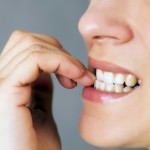
Despite the fact that modern dentistry is largely painless dental anxiety is still relatively common with an estimated 4% of the population severing from dental phobia. While research suggests that general practitioners are capable of managing patients with mild to moderate forms of dental anxiety patients with severe anxiety/phobia require more specialist input.
The aim of this review was to assess the effectiveness of non-pharmacological intervention to reduce mental distress, pain, and analgesic use in adults undergoing dental treatment.
Methods
Searches were conducted in the Medline, Cochrane CENTRAL, Web of Science, and PsychINFO and the ProQuest Dissertations and Theses full text databases. Randomised controlled trials (RCTs) in adult patients of any pre-treatment non-pharmacological intervention to reduce mental distress were considered. A single reviewer selected studies with two reviewers independently abstracting data and assessing risk of bias using the Cochrane tool. Standardised mean differences (Hedges’ g ) were calculated and random effects meta-analysis conducted.
Results
- 29 studies involving a total of 2886 patients were included.
- 10 studies used cognitive-behavioural or behavioural approaches, including distraction
- 9 studies reported on the effects of enhanced information.
- 7 studies examined relaxation.
- 4 studies used music and 4 hypnosis
- Risk of bias assessments has hampered by lack of reporting.
- Meta-analyses found
- significant positive treatment effects for the reduction of mental distress g = 0.58 (CI 95% 0.39 to 0.76).
- No significant effects for
- pain relief; g = 0.00, (CI 95%; -0.28 to 0.28) or
- reduction of analgesic use; g = 0.26(CI 95%; -0.22 to 0.73).
- No significant differences were seen between the various types of non-pharmacological interventions.
Conclusions
The authors concluded: –
non-pharmacological interventions may be beneficial for reducing mental distress in patients undergoing dental procedures and could thus be considered as valuable adjunct to standard care.
Comments
Several major databases have been searched for this review and 29 RCTs have been included. While the authors planned to use the Cochrane risk of bias tool they noted that these was a lack of information in the included studies to allow assessment of several elements including selection and reporting bias. The authors report positive benefits with each of the non-pharmacological approaches but no difference between the interventions tested. While the results suggest positive outcomes the quality and reporting of studies in this important area needs to be improved to strengthen the available evidence.
Links
Primary Paper
Burghardt S, Koranyi S, Magnucki G, Strauss B, Rosendahl J. Non-pharmacological interventions for reducing mental distress in patientsundergoing dental procedures: Systematic review and meta-analysis. J Dent. 2018 Feb;69:22-31. doi: 10.1016/j.jdent.2017.11.005. Epub 2017 Nov 14. Review. PubMed PMID: 29154798.
Other references
Dental Elf – 8th Mar 2017
